Witness sunset at 9:30 p.m.
Sunset
Du Fu
日暮
牛羊下来久
各己闭柴门
风月自清夜
江山非故园
石泉流暗壁
草露滴秋根
头白灯明里
何须花烬繁
rì mù
niú yáng xià lái jiǔ
gè jǐ bì chái mén
fēng yuè zì qīng yè
jiāng shān fēi gù yuán
shí quán liú àn bì
cǎo lù dī qiū gēn
tóu bái dēng míng lǐ
hé xū huā jìn fán
(Direct word for word translation)
Cow sheep move down slowly
Each self shut wicker door
Wind moon from clear night
River hill not homeland
Stone spring flow dark cliff
Grass dew drip autumn root
Head white lamp brightness inside
What need flower embers flourish
( Try to make sense for non-Chinese poem reader only )
The cows and sheep are moving slowly down,
Each villager has shut his wicker gate.
The wind and moon disturb the clear night,
This landscape of rivers and hills is not my homeland.
A spring flows from the stones of a darkening cliff,
The autumn dew drips on the grass's roots.
My white head is within the brightness of the lamp,
What need for the flower to flourish so?
(In French)
(Essayer de donner du sens au poème uniquement pour les lecteurs non chinois)
Les vaches et les moutons descendent lentement,
Chaque villageois a fermé son portail en osier.
Le vent et la lune troublent la nuit claire,
Ce paysage de rivières et de collines n'est pas ma patrie.
Une source jaillit des pierres d'une falaise qui s'assombrit,
La rosée d'automne goutte sur les racines de l'herbe.
Ma tête blanche est dans la lumière de la lampe,
Quel besoin pour la fleur de s'épanouir ainsi ?
Li Shangyin's classic sunset poem, with just 20 words, is fascinatingly beautiful
李商隱的經典夕陽詩,短短20字,卻美得令人心醉
李商隐经典夕阳诗,短短20字,美得令人心醉
登乐游原
(李商隐)
向晚意不适,驱车登古原。
夕阳无限好,只是近黄昏。
Dēng lè yóu yuán
(lǐshāngyǐn)
xiàng wǎn yì bùshì, qūchē dēng gǔyuán.
Xīyáng wúxiàn hǎo, zhǐshì jìn huánghūn.
(English translation):
Climbing Leyouyuan
(by Li Shangyin)
I feel uncomfortable in the evening, so I drive to the ancient plain.
The sunset is infinitely beautiful, but it is almost dusk.
This is a well-known Tang poem, especially the last two sentences. Even for those who do not read poems, when facing the magnificent sunset, they often first think of using these two sentences to express inner feelings. Indeed, the beauty of the last two lines of poem lies not only in the shock and magnificence of the setting sun itself, but also in expressing the emotion that people generally have when they see such "infinitely good" scenery.
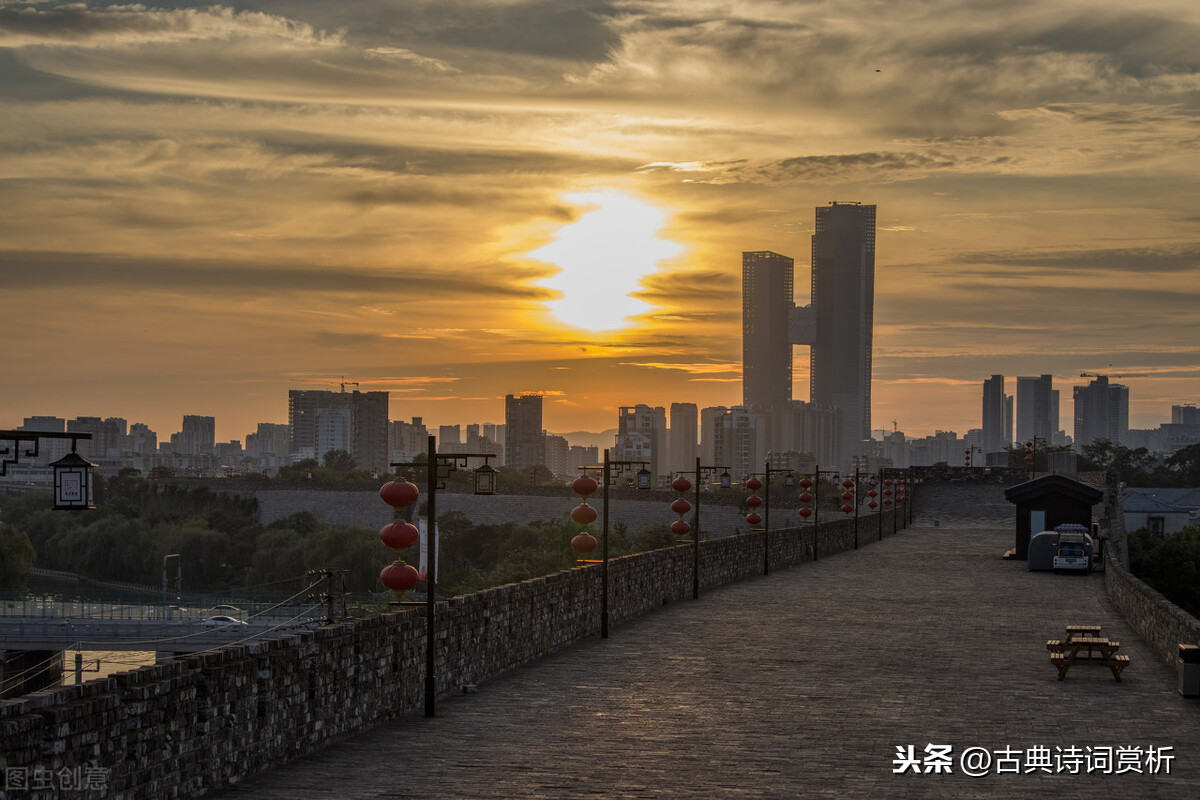
I personally like this poem very much. Every time I read it, the voice of poem in my heart will be lowered unconsciously, and the rhythm of reading poem in my heart will also slow down unconsciously. It seems that in these short twenty words, we read a sad era (this is due to the profound connotation of the poem itself, and the unique rhythm of the five-character poem).
When most literati*(well-educated people who are interested in literature. 文人 Wén rén) of later generations appreciate this poem, they can probably taste the unique beauty of the "three sorrows", that is, the magnificence and sadness of the landscape that the poet sees at this moment, the poet feels the ups and downs of the life experience, and the sorrow of the precarious era of the late Tang Dynasty. Because there are really no three things in the history of poetry that can have such characteristics: a poet who wants to make a difference and is ruined by a dark political situation, a country that is deeply mired in internal and external troubles, and is about to die. In showing the last glorious sunset, these three things put together, it is hard not to produce a famous poem. Today we will read Li Shangyin's "Deng Le You Yuan" carefully to see where it is beautiful and what emotional changes are contained in the four-line poem.
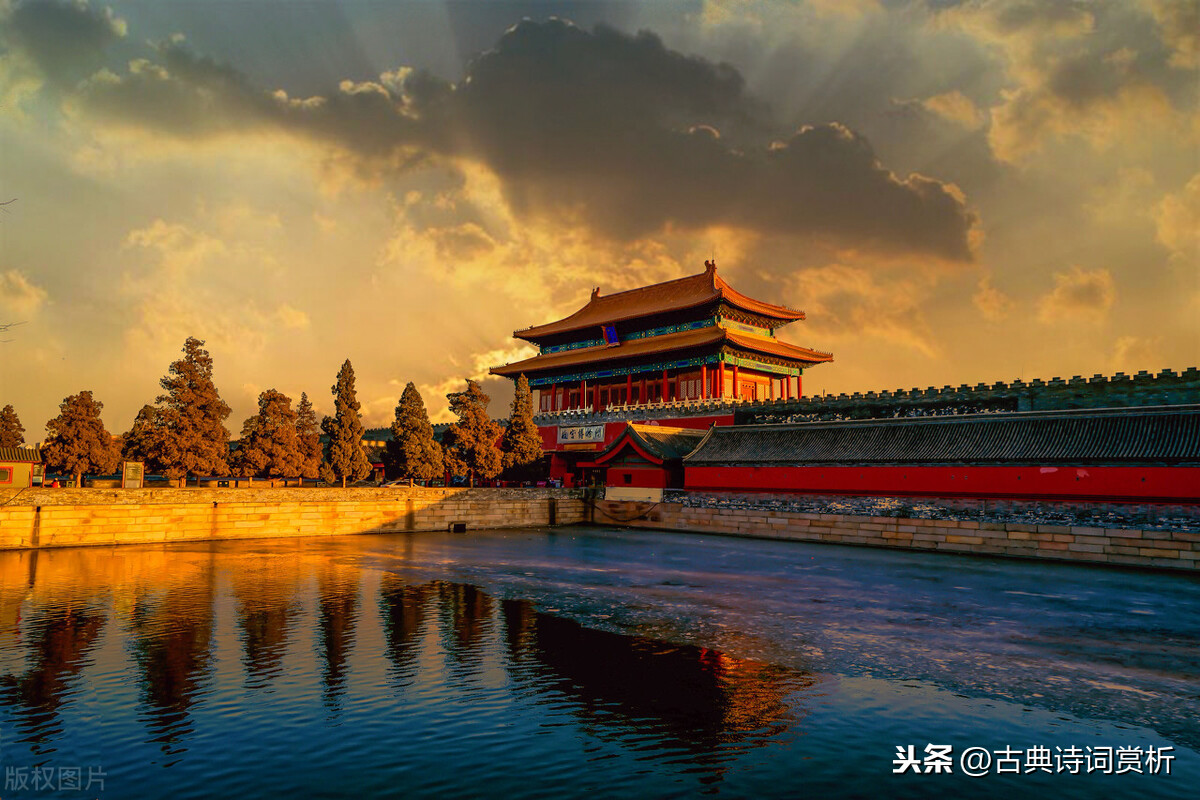
Poetic interpretation
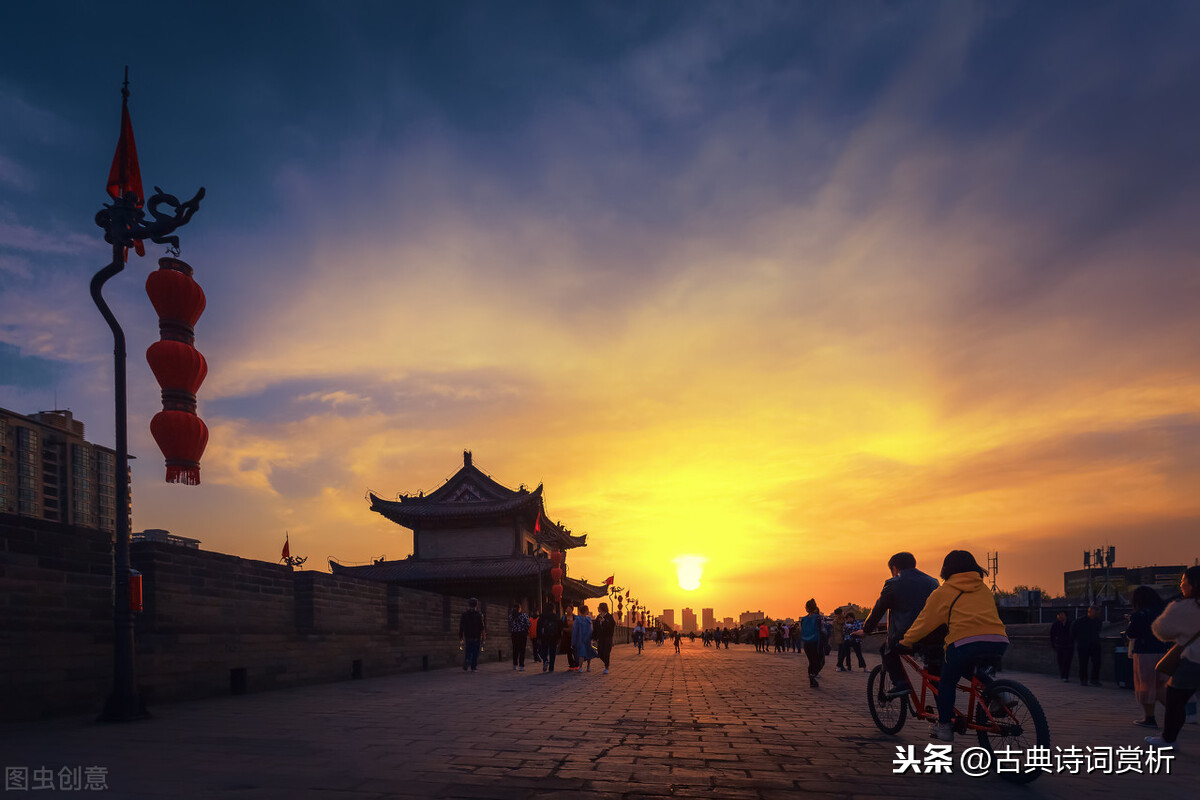
"The sunset is infinitely beautiful , It's just near dusk", the poet recites this ancient famous sentence. However, when people of later generations read these two poems, they often have a "preconceptions" misunderstanding, that is, they only focus on the great sadness caused by the latter sentence, thinking that the whole poem only expresses this kind of Feeling, and there is no emotional change! This kind of "non-exquisite" generalized pronunciation is actually inappropriate.
The emotional context of the whole poem is dynamically changing. The poet's "intentional discomfort" from the beginning, and then drove up the ancient plains alone, to the moment he saw the magnificent sunset, "intentional discomfort" Emotions were greatly comforted, he was satisfied, he was immersed in this vast landscape, quite a state of being "healed". But the gorgeous and irresistible sense of despair, which is produced by the beautiful things in the world towards the end, is complementary and indispensable. Li Shangyin may be like this at this time. Facing the bloody setting sun, he not only felt the satisfaction of seeing the beautiful scenery, but also suddenly gave birth to the sense of despair that this scenery will soon disappear, and he was completely unable to keep it as he watched it disappear. And the inner contradiction is the saddest. So we must read this "contradictory sense" of joy and despair, satisfaction and sorrow. Only when there is conflict in the heart, the helplessness and sadness that burst out can be more sincere and moving.
What is the Chinese literati style?
Literati painting is a traditional genre of Chinese painting, a comprehensive form of art that integrates painting with poetry, seal art, and particularly calligraphy. As the name implies, most of its practitioners were scholar-officials, whose main purpose for painting was to express their own feelings and thoughts.
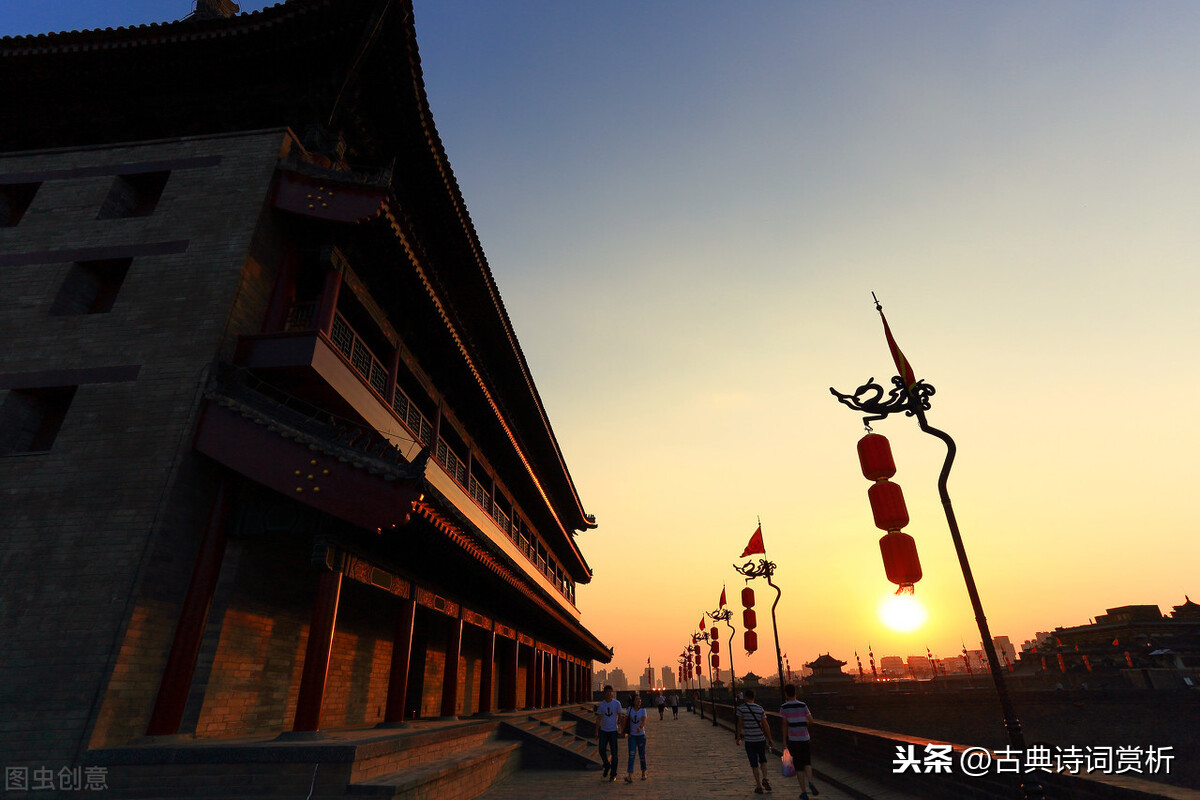
The beautiful things are only produced when things come to an end. It is a complex and indescribable feeling that combines the changes in the viewer's mentality and the beauty of the objective scenery itself. As far as the objective scenery is concerned, in the small hour period of "climax and gradual end", it is true that the most splendid, brightest and most intoxicating aspect can be burst out, not to mention the magnificent scenery like the setting sun. As far as the mentality of the viewer is concerned, at the time of "climax and gradual ending", there is often an extremely intertwined psychology, because it is a kind of burst out based on the disappearance of "life". The beauty, the more gorgeous, the more people can think of death. The ultimate beauty is the moment when it ends. It can often make viewers think of themselves, of destiny, and of human powerlessness. So this kind of beauty is both dazzling and dazzling. People are sad.
In fact, people are born with a mentality of "things sorrow" hidden deep in the soul, just like Kawabata Yasunari's sentence, "Sorrow is born when you see all things, and the things that surround you "Emotion", and this psychological "conflict" of "seeing all things and begetting sadness" is the strongest and most violent when things are "climax and gradual ending", so you can often see some people A certain moment of extreme beauty was very melancholy and disappointed. When others were marveling at the beauty in front of him, he was already very sad. This is just like what is said in Chinese classical poems that "write sorrow with music scene, the more sad the feeling will be". And these two sentences "the sunset is infinitely good, but it's just near dusk" Shu Ji is like this, using music scenes to induce grief, and with the most magnificent and short-lived music scenes, they write the most lost and most irresistible grief. Therefore, the two sentences of Li Shangyin have been endowed with various meanings by the people of the world. They have political significance, life significance, philosophical significance, and aesthetic significance. This shows that these two poems indeed contain infinity. The connotation of. This is also the reason why it can spread through the ages and be well-known to every family.
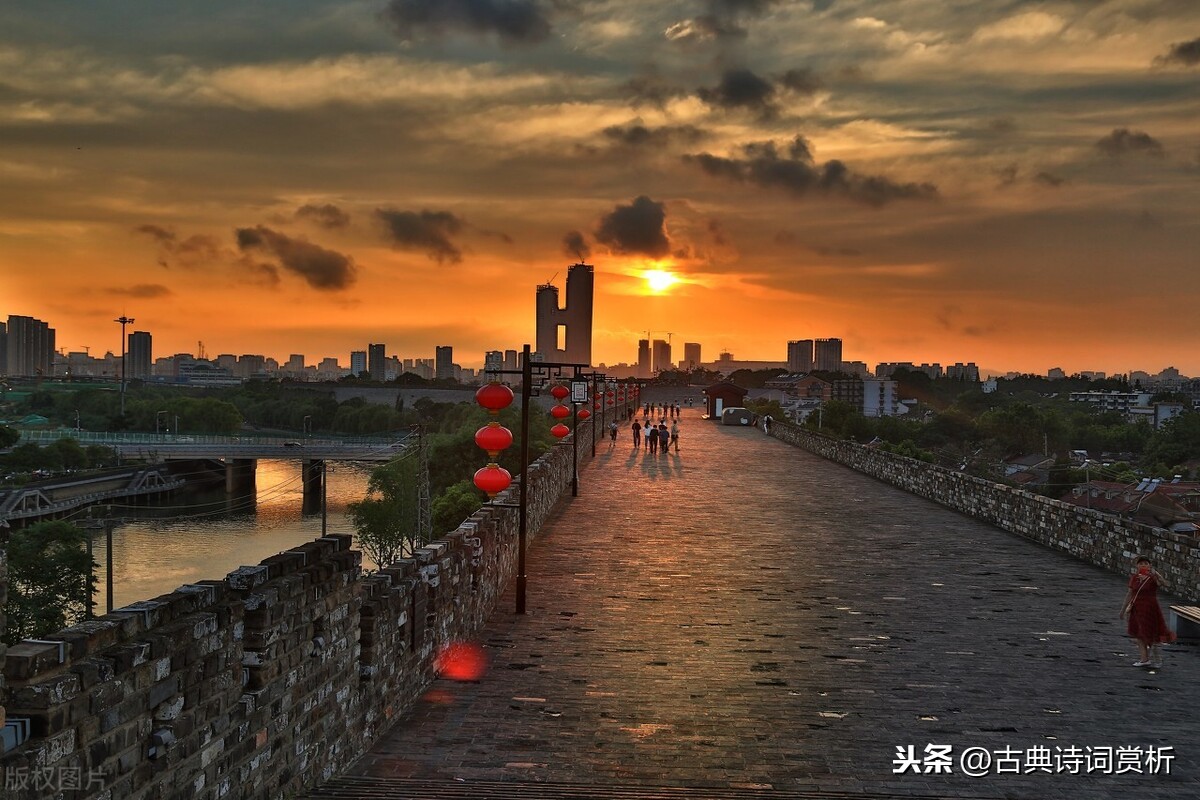
Interpretation controversy
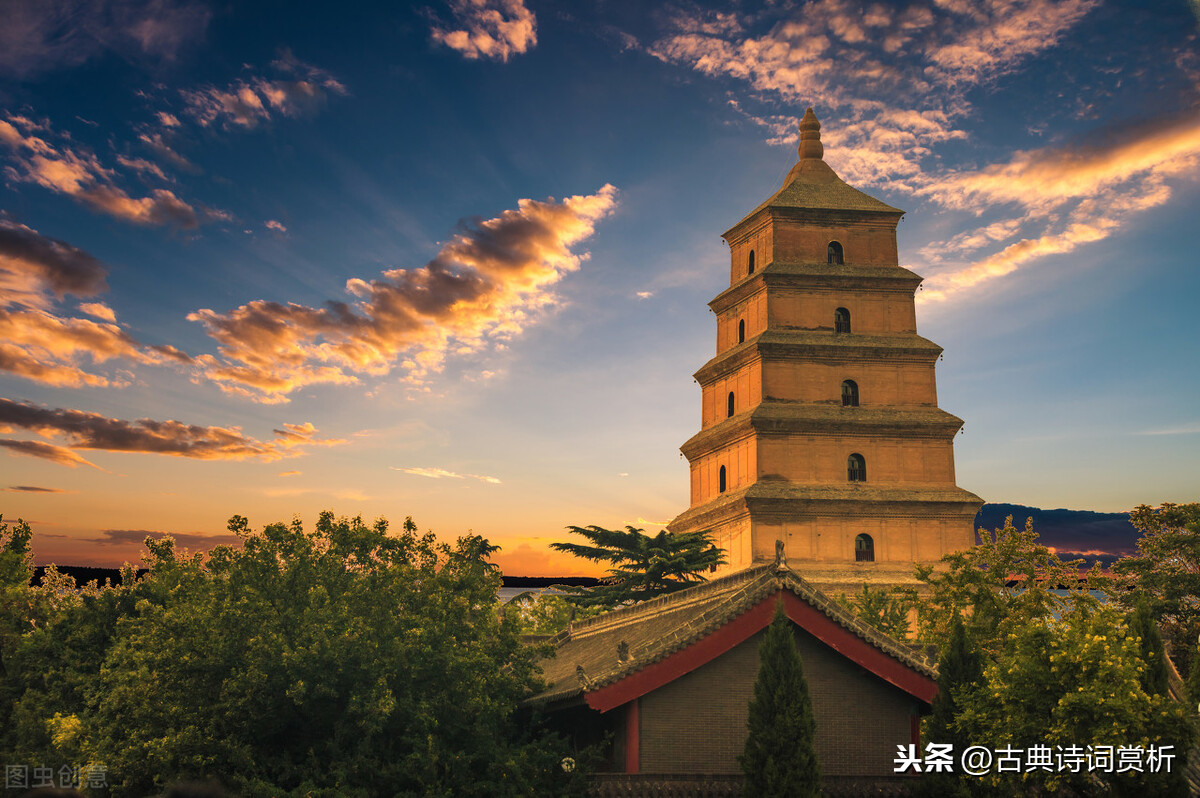
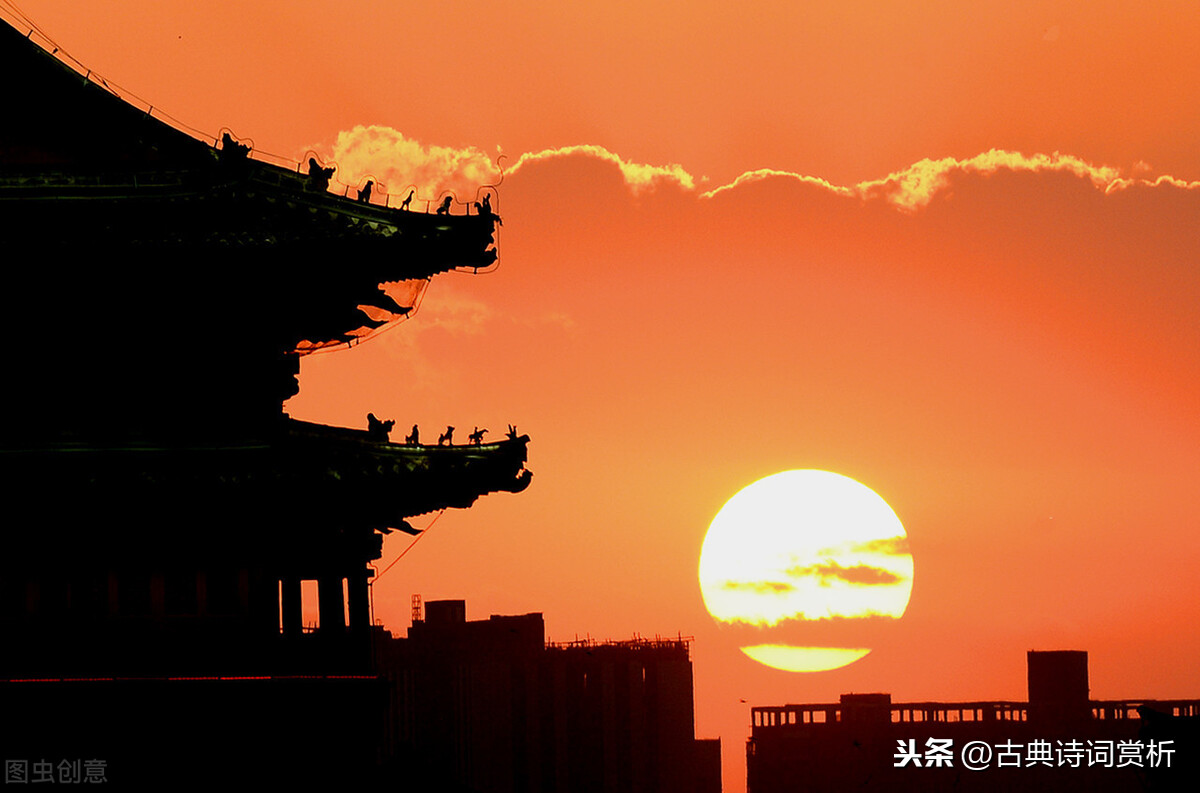
李商隐《登乐游原》“夕阳无限好只是近黄"
Li Shangyin's "Climbing Leyouyuan" "The sunset is infinitely beautiful, but it is close to the yellow"
乐游原》是作者赞美黄昏前的原野风光和表达自己的感受。诗人李商隐透过当时唐帝国的繁荣,预见到社会的严重危机。 而“夕阳无限好,只是近黄昏”两句诗也表示:人到晚年,过往的良辰美景早已远去,不禁叹息光阴易逝,青春不再。这是迟暮者对美好人生的眷念,也是作者有感于生命的伟大与不可超越,而借此抒发一下内心的无奈感受。
"Leyouyuan" is a poem in which the author praises the scenery of the fields before dusk and expresses his feelings. The poet Li Shangyin foresaw the serious crisis of society through the prosperity of the Tang Empire at that time. The two lines of poetry "The sunset is infinitely beautiful, but it is near dusk" also express that when people reach old age, the good times and beautiful scenery of the past have long gone, and they can't help but sigh that time flies and youth is gone. This is the nostalgia of the old for a better life, and the author feels that life is great and cannot be surpassed, and expresses his inner helplessness through this.
登乐游原
(李商隐)
向晚意不适,驱车登古原。
夕阳无限好,只是近黄昏。
【注释】
向晚:傍晚。
古原:指乐游原,汉宣帝修建的游览地,在陕西长安城南。
李商隐二十五岁时由令狐楚的儿子令狐陶推举得中进士,不久令狐楚死,他得到王茂之的器重,王将女儿嫁给了他。因为王茂之是李党的重要人物,李商隐从此陷入牛李党争不能自拔,在官场之中异常失意,著名诗篇《乐游原》正是他心境郁闷的真实写照。
意:感到
Climbing Leyouyuan
(Li Shangyin)
I feel uncomfortable in the evening,
so I drive to Guyuan.
The sunset is beautiful,
but it is near dusk.
[Notes]
In the evening: evening.
Guyuan: refers to Leyouyuan, a tourist attraction built by Emperor Xuan of Han, located in the south of Chang'an City, Shaanxi Province.
When Li Shangyin was 25 years old, he was recommended by Linghu Chu's son Linghu Tao to become a Jinshi. Soon after Linghu Chu died, he was valued by Wang Maozhi, who married his daughter to him. Because Wang Maozhi was an important figure in the Li Party, Li Shangyin was trapped in the Niu-Li Party struggle and could not extricate himself. He was extremely frustrated in the officialdom. The famous poem "Leyouyuan" is a true portrayal of his depressed mood.
Meaning: feel
(French/Français)
« Escalade du Leyouyuan » de Li Shangyin « Le coucher de soleil est infiniment beau, mais il est proche du jaune »
« Leyouyuan » est un poème dans lequel l'auteur loue le paysage champêtre avant le crépuscule et exprime ses sentiments. Le poète Li Shangyin avait anticipé la grave crise sociale provoquée par la prospérité de l'Empire Tang à cette époque. Les deux vers « Le coucher de soleil est infiniment beau, mais le crépuscule approche » expriment également que, lorsqu'on atteint la vieillesse, les beaux jours et les magnifiques paysages du passé sont révolus, et on ne peut s'empêcher de soupirer que le temps passe vite et que la jeunesse est partie. C'est la nostalgie du passé pour une vie meilleure, et l'auteur ressent cette grandeur et cette impuissance intérieures.
Ascension de Leyouyuan
(Li Shangyin)
Je me sens mal à l'aise le soir, alors je me rends à Guyuan. Le coucher de soleil est magnifique, mais le crépuscule approche.
[Notes]
Le soir : soir.
Guyuan : fait référence à Leyouyuan, une attraction touristique construite par l'empereur Xuan de Han, située au sud de la ville de Chang'an, dans la province du Shaanxi.
À 25 ans, Li Shangyin fut recommandé par Linghu Tao, le fils de Linghu Chu, pour devenir Jinshi. Peu après la mort de Linghu Chu, il fut apprécié par Wang Maozhi, qui lui donna sa fille en mariage. Wang Maozhi étant une figure importante du Parti Li, Li Shangyin fut pris au piège des luttes entre le Parti Niu et le Parti Li et ne parvint pas à s'en sortir. Il était extrêmement frustré par la bureaucratie. Le célèbre poème « Leyouyuan » est une description fidèle de son humeur dépressive.
Signification : ressentir
No comments:
Post a Comment